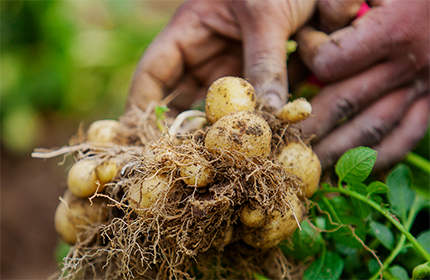South Asia Conference on Current Approaches to the Environmental Risk Assessment of Genetically Engineered Crops
-

May 16, 2011-May 18, 2011
New Delhi, India
The Agriculture & Food Systems Institute’s Center for Environmental Risk Assessment organized a conference on current approaches to the environmental risk assessment (ERA) of genetically engineered (GE) crops in New Delhi, India in May 2011. This conference provided attendees with an opportunity to hear leading scientists from regulatory agencies, public sector research institutions and the private sector in Australia, Brazil, Canada, Europe, India, Mexico, the Philippines, the United Kingdom and the U.S. present on the current science that is used to inform the environmental risk assessment of genetically engineered crops.
Program Overview
The conference featured sessions on:
- International Experience in Environmental Risk Assessment of GE Plants
- Problem Formulation for Environmental Risk Assessment
- Selected Topics in ERA
- Additional Science for Oversight of GE Plants
- Recurring Issues for ERA of GM Plants
Session I: International Experience in Environmental Risk Assessment of GE Plants
International Consensus on ERA of GM Crops: Contributions from the OECD
Sally McCammon, USDA, United States
ERA of GE Crops in Australia
Joe Smith, Office of the Gene Technology Regulator, Australia
ERA of GE Crops in the Philippines
Flerida Carino, University of the Philippines, Philippines
ERA of GE Crops in India
Ranjini Warrier, Ministry of Environment and Forests, India
ERA of GE Crops in India
S.R. Rao, Department of Biotechnology, India
Session II: Problem Formulation for Environmental Risk Assessment
Problem Formulation in Environmental Risk Assessment: Where Do We Begin?
Alan Gray, UK Center for Ecology and Hydrology, United Kingdom
Problem Formulation in Environmental Risk Assessment: Reducing Uncertainty in Decision-Making
Alan Raybould, Syngenta
Context for Problem Formulation – 25 years of Biosafety Research in the EU
Ioannis Economidis
Applying Problem Formulation to ERA in India
Vibha Ahuja, BCIL, India
Perspective on ERA from a Public Sector Research Organization
Swapan Datta, Indian Council of Agricultural Research, India
Session III: Selected Topics in ERA
Collecting Data and Interpreting Results from Field Trials
Donald MacKenzie, Pioneer Hi-Bred, United States
Gene Flow to Wild and Weedy Relatives
Phil Macdonald, Canadian Food Inspection Agency, Canada
Considering Gene Flow in Centers of Origin or Centers of Diversity
Ariel Alvarez-Morales, CIBIOGEM, Mexico
Early Tier Lab Testing of Non-Target Organisms
Joerg Romeis, Agroscope ART, Switzerland
Semi-field and Field Studies for Assessing Impacts on Non-Target Organisms
Alan Raybould, Syngenta, United States
Session IV: Additional Science for Oversight of GE Plants
Post Release Environmental Monitoring (PREM)
Alan Gray, UK Center for Ecology and Hydrology, United Kingdom
PREM – General Surveillance in Brazil
Paulo Paes de Andrade, Federal University of Pernambuco, Brazil
Canada’s Approach to PREM
Phil Macdonald, Canadian Food Inspection Agency, Canada
Insect Resistance Management: The Past, the Present and the Future
Rick Roush, Melbourne School of Land and Environment, Australia
Insect Resistance Management – Predicting Insect Resistance in Bt Cotton using Modeling
K.R. Kranthi, Central Institute for Cotton Research, India
Recurring Issues for ERA of GM Plants – Panel Discussions
Horizontal Gene Transfer
Andrew Roberts, Agriculture & Food Systems Institute, CERA, United States
Antibiotic Resistance Markers
Ioannis Economidis
Herbicide Tolerance Management of GE Crops
Donald MacKenzie, Pioneer Hi-Bred, United States
